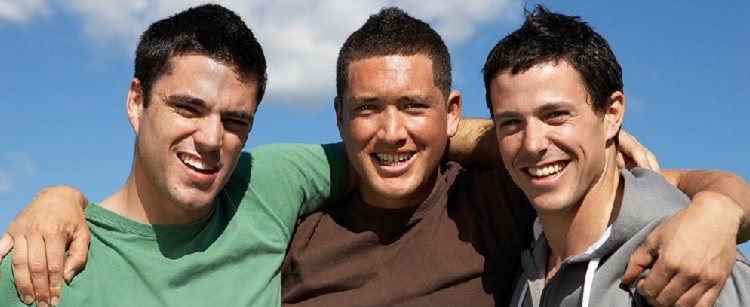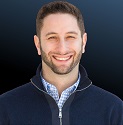Male Shame No More!
We are seeing the days of stoicism begin to crack, and under that tough guy superman facade are living, breathing, young men who struggle daily. When our culture shames men for acknowledging emotions, slowing down, allowing creativity, or connecting with one another, we never get to feel better.
Men feel more than ever that exerting their masculine ideals creates a sense of safety and belonging. If you’re not a “man,” then what are you worth? Restricted emotionality and the need for success power and control are taking the reins and resulting in shame. Competition and the drive for muscularity are only being emulated and enabled by male media objectification. Poor affectionate behavior leads to severe restricting, rigid meals, and hours compensating in the gym. Men would rather be numb.
We live in a culture that thrives on masculine ideas and we are learning that it doesn’t work. The extremes cause us to cut ourselves off from our sense of self, leading men towards an insufficient personal understanding and compromised emotional health.
It’s time to shift the cultural bias held against all men who have struggled with an eating disorder and address the issue head on.
As a community of survivors, current sufferers, and professionals, it is essential that we shift this cultural bias. All people with an eating disorder have the opportunity to address this issue head on. But how? Where is this even possible?
There are transformational opportunities to step away from the shame of being a man with an eating disorder to one of resonance, validation, honesty, and humanity. Qualities that break through a masculine mystique and create a life worth living. Here are just a few:
- Begin to find books, works of art, creative means that help you process and feel emotions that don’t always require someone else to validate your happiness
- Buy something small, every week as a meaningful token of appreciation and self care. This can be something such as a meaningful yet inexpensive collectible, a flower, a thoughtful magazine. Anything that makes you feel you are unique as this is a small token of self-validation.
- Get out of your current claustrophobic space and go for a walk, take a drive somewhere new, have an experience with nature in which you are allowed to soak in the energy.
Anything else we can do?
We stand together and we tell the world that there is hope. Shame is not something to be shameful about. It’s an emotion that we all experience. I am so proud to say that more and more men are reaching out and organizations such as the National Association for Males with Eating Disorders and NEDA are creating a place to find resources and support.
Show up to therapy. Show up to community events. Be present. It’s ok to be a guy with an eating disorder. You may not know this – when a man shows up to a community eating disorder event the sense of understanding is unbelievable. The opportunity to be one of the first men to arrive and say, “I have an eating disorder and I will get through this” is real. The support is tangible. The reality is waiting for you. Recovery is there. This is all possible.
You can do this.
About the Author:
Brian Pollack, LCSW, CEDS, is a board member of the National Association for Males with Eating Disorders, he currently is the only male in the state of NJ certified as an eating disorder specialist. He has devoted much of his time and practice advocating for treatment and awareness around male eating disorder sufferers. Mr. Pollack has trained professionals and presented nationally including the International Association for Eating Disorder Professionals, NYC Department of Health, Princeton Medical Center and various institutional settings. As a former Primary Therapist at Robert Wood Johnson University Hospital’s Eating Disorder Program he provided adolescent, adult, and family counseling at all levels of care. He received his Masters of Social Work from NYU and his undergraduate degree from Syracuse University. He is experienced in co-occuring disorders including substance abuse, mood disorders, and trauma and is a psychotherapist in private practice located in Summit, NJ. https://hilltopbehavioralhealth.com/





